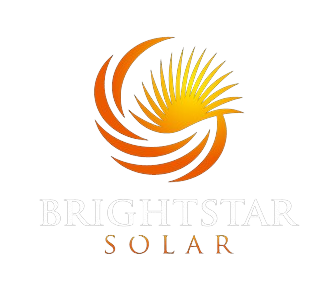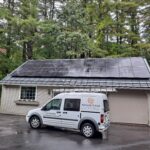Through the landmark tax legislation that passed at the end of 2010, the federal government was able to extend the Section 1603 Treasury Grant program for renewable energy commercial projects, including solar photovoltaic, through December 31, 2011. Section 1603 establishes that businesses eligible for the federal business energy investment tax credit (ITC) may take a cash grant instead of the ITC.
The American Recovery and Reinvestment Act, enacted in July 2009, created the Section 1603 tax grant program. The Solar Energy Industries Association (SEIA) has credited Section 1603 with prompting over 1,100 solar installations in 42 states and creating 100% growth in solar investments in 2010. The increased solar capacity is supplying power to 200,000 homes and providing jobs for approximately 93,000 individuals.
Commercial entities that own renewable energy projects that start construction in 2009, 2010, or 2010 and are completed by the deadline (2012 for wind, 2016 for solar and fuel cell, and 2013 for all other renewables) will qualify for a tax incentive equal to 30% of the project’s cost with no cap. The incentive may be taken in the form of a tax credit (ITC) or cash grant. The advantage of a tax grant is payment must be made within 60 days from the later of the date when the property is placed into service or the date of the application. With a tax credit, you will have to wait to capitalize on the incentive until you file your taxes the following year.
The Department of Treasury has detailed information on their website as to the terms of Section 1603. In order to request a cash grant in lieu of the business ITC, you must complete the online application and attach necessary documents.
Documentation is required to prove that:
(1) The property is eligible – an engineering diagram stamped by a PE is compulsory for all properties.
(2) The property has been placed in to service – for interconnected systems, the approval from the utility to interconnect is required.
(3) The amount requested is accurate – a breakdown of all costs that make up the cost basis are required.
For more information about the Section 1603 federal tax grant for commercial solar installations, please refer to the Department of Treasury.
Brightstar Solar is a licensed solar installer servicing Massachusetts and Connecticut. We work with our customers to help navigate the installation process and maximize incentives. If you have a home or business in Massachusetts or Connecticut and are interested in solar power, please contact us for a free evaluation.








Pingback: Tweets that mention Federal Grant Explained for Commercial Solar — BRIGHTSTAR SOLAR -- Topsy.com
Pingback: Depreciation Benefits for Commercial Solar Installations — BRIGHTSTAR SOLAR
Pingback: US Solar Installed Capacity Sees Fastest Growth in 2010 — BRIGHTSTAR SOLAR
Pingback: Depreciation Benefits for Commercial Solar Installations
Pingback: Explained: Federal Grants for Commercial Solar
Thank you for your sharing. I am worried that I lack creative ideas. It is your article that makes me full of hope. Thank you. But, I have a question, can you help me?
Can you be more specific about the content of your article? After reading it, I still have some doubts. Hope you can help me. https://www.binance.com/es-MX/register?ref=JHQQKNKN
Your point of view caught my eye and was very interesting. Thanks. I have a question for you.
Despite its intimidating name, this drill is simple and might simply be included into any at-home shoulder exercise routine.
Even should you solely do a shoulder exercise in your home, you want to still start with
a proper warm-up to increase your mobility.
Once you are in less discomfort, you presumably can try this with out
isometric workout routines. With your arms at your facet, slowly carry your arm above your head.
As Soon As your sling is removed, you can start to build up your shoulder strength.
This is the time for shoulder dislocation rehabilitation workout routines.
The good thing about using dumbbells for shoulder workouts is that they will
work on both sides of the shoulders individually, which helps to repair muscle imbalances.
If you do not have a fair quantity of shoulder mobility,
performing these barbell shoulder workout routines just isn’t really helpful.
It also indirectly targets the other muscle tissue of the shoulder, your triceps, and your core.
As a beginner, you won’t be familiar with the various shoulder workouts obtainable.
It could be onerous to try new exercises or understand the completely
different routines when you don’t know the names of the exercises.
Explore techniques like drop sets (reducing weight mid-set
for more reps) or supersets (performing two workout routines back-to-back) to challenge your muscles additional.
To begin with, use isometric exercises (strengthening exercises where there is no movement).
Eventually, you’ll be able to introduce a resistance band into
this train – holding the band beneath your foot and slowly lifting it above
your head. As that is an overhead exercise, it could be
very important avoid inflicting any injury to your recovering shoulder.
If you expertise any pain in any respect, or discomfort that lasts longer than 10
seconds, transfer again to the modified shoulder flexion exercise.
Stand up with your arm at your side and your palm facing your thigh.
Goal to do all these shoulder dislocation exercises four instances per
day.
He’s not just an armchair fitness skilled; Patrick practices what he preaches!
He has competed at a high level in numerous sports activities, including rugby, triathlon, mountaineering,
trampolining, powerlifting, and, most lately, rise up paddleboarding.
When not lecturing, training, researching, or writing, Patrick is busy having fun with the sunny local weather
of Cyprus, the place he has lived for the last 20-years.
Because of this, it is essential that you heat up your shoulders before coaching them.
Failure to do so can result in acute and continual accidents and in addition make
your workout much less effective. Use the next
information to ensure your shoulder exercises are as safe
and efficient as potential.
Embrace these exercises and experience the exceptional impact they’ll have on your energy and performance.
This is an awesome dumbbell exercise to ensure you hit the entire
triceps. While you traditionally carry out this exercise standing, some shoppers might find that kneeling provides extra stability for a bigger
raise.
By incorporating inclined swimmers into your routine, you can enhance
your shoulder mobility and power, which is important for maintaining total shoulder health.
Including this train to your routine may help enhance your overall shoulder well
being and improve your mobility. Including scapular wall slides to your shoulder
warm-up routine might help enhance your shoulder well being
and reduce the chance of ache and damage. Extra
importantly, you don’t even need a house gym or a
garage gym to do most of the finest workouts for shoulders.
This might trigger your shoulder to slide
again out of its socket and dislocate again.
The barbell overhead press is usually considered one
of the efficient shoulder exercises, participating a number
of muscle groups for total shoulder improvement.
Cable internal and external rotations are another excellent train for
shoulder health, concentrating on the rotator cuff muscular tissues.
You can do these with a resistance band if you don’t have access to a cable machine.
The Arnold Press is a unique shoulder exercise that targets
multiple elements of the deltoids. It Is similar to a seated dumbbell shoulder
press, besides you rotate the dumbbells while pressing
them up. This is decided by what number of shoulder workouts you might be doing per
session. According to research, it’s the total weekly coaching volume,
rather than the workout frequency, that issues most for muscle growth [2].
Once you have accomplished your warm-up, you can start doing some workouts to strenghten your
rotator cuff and shoulders.. Incorporating this exercise as the final component of your at-home shoulder warm-up is a nice way to organize your body for a productive and effective workout.
I extremely advocate adding windmills to your exercise routine to further
improve your shoulder mobility. I highly recommend
making the Shoulder Dislocation Mobility Drill a
every day part of your shoulder exercise routine.
References:
onyx labs steroids
Subsequently, it is sometimes stacked with Anadrol,
testosterone, or trenbolone. Nonetheless, it is equally efficient when it comes to
its capacity to build muscle tissue. One notable distinction is that customers often maintain muscle
size once they discontinue trenbolone, whereas they typically lose intracellular water once they discontinue Dianabol
or Anadrol. Dianabol increases aromatization and thus has excessive estrogenic exercise.
Consequently, water retention and gynecomastia are possible unwanted effects.
However, bodybuilders utilizing supraphysiological doses of testosterone or other anabolic
steroids usually are not suggested to take them continuously due to extended toxicity.
Anadrol is an oral steroid, which makes it advantageous for people who wish to circumvent injections.
Anecdotally, we now have noticed that first-time Anadrol
cycles can produce over 30 kilos in weight.
Testosterone can even negatively affect high-density lipoprotein (HDL) and low-density lipoprotein (LDL) cholesterol ratios, probably causing hypertension (2).
Nonetheless, we observe such elevations in blood stress to be
mild compared to more extreme anabolic steroids.
Thus, testosterone is the least cardiotoxic steroid based on our patient’s lipid panels.
Testosterone is likely to elevate cholesterol levels and enhance blood stress.
This is doubtless certainly one of the least poisonous steroid stacks that we now have overseen. There is a further risk of gynecomastia when taking Deca as a result
of its reasonable progesterone exercise. Thus, if you were to stack Deca with Anadrol, for
example, it is not a perfect combination because Anadrol can’t be run for long durations as a outcome of its excessive toxicity.
Loopy Bulk’s formulation are supported by scientific research and are secure for men and women to
make use of.
Loopy Bulk is our beneficial supply for legal steroid options, primarily based on 1000’s of positive
reviews on verified platforms corresponding to Trustpilot and Feefo.
Since testosterone cypionate was formulated, we’ve seen it become more regularly used than enanthate in the US because of its
restricted availability worldwide. Furthermore, cypionate injections might
present much less irritation than enanthate for some users.
Enanthate and cypionate are the 2 commonest types of testosterone, made
up of longer esters that are slower to take effect. Also, because propionate injections are identified to be
painful, bodybuilders can go for a unique ester. I went from
having the power to do 1 unassisted pull-up & now I can do 7.
Of course, fluid retention is certainly one of the nasty
unwanted side effects of Anadrol. This can lead to a bloated and puffy look, as
properly as increased blood pressure. Anybody who checks positive for anabolic steroids in these competitions can be subject to a number of
penalties, including fines and suspension from competition. Additionally, in sports activities competitions, the utilization of anabolic steroids is banned
by most major organizations. For instance, some anabolic steroids can be
found over the counter in other international locations.
In addition to inflicting swelling within the extremities, water retention also can lead to weight
acquire, fatigue, and shortness of breath.
This considerably reduces the danger of gynecomastia with out considerably decreasing general estrogen levels (thus preserving
HDL cholesterol and serotonin levels optimal). Testosterone propionate is
another fast-acting ester, albeit slower than suspension. Some bodybuilders
view propionate as cost-effective because its worth is decrease; however,
propionate is dosed at 100 mg/mL as a substitute of 250 mg/mL (the ordinary
testosterone dosage). Anavar’s effects can be noticeable within the first week of usage, but it can take as a lot as
4-6 weeks to see the full advantages. The
fee of Anavar’s absorption and the velocity at which it starts working can differ depending on a number of elements,
together with the individual’s age, body composition, and
metabolism.
Continued use of Anavar enhances endurance, enabling bodybuilders to endure lengthier and
more intense exercise classes. One notable observation within the preliminary couple
of weeks is a rise in strength. Anavar, on this way, helps kick up the stamina, making ready the body for
the journey forward. As beforehand acknowledged,
Anavar is a really versatile compound when in comparison with different orals.
If you’re conversant in using steroids, you’ll be used to
measuring dosages in milligrams (mg). However, the
dosage have to be measured in micrograms (mcg and typically also written as µg) with Clenbuterol.
Clenbuterol’s benefits could be just as potent as its unwanted effects.
This is a results of Anavar’s recognized property of promoting fat loss and bettering muscle retention. In truth,
muscle tissue weighs more than fat, so if you account for the growth in muscle mass because of Anavar use, it’s attainable to
even see a small enhance in general body weight. That’s completely
normal and is an indication that you’re constructing muscle.
So, an increase in weight doesn’t essentially mean you’re not losing fats.
Simultaneously, the energy features skilled within the initial two weeks continue to
develop, leading to even better workout performances.
More reps, heavier weights, and longer durations become more achievable.
Clenbuterol is taken orally and since it is not a steroid, you wouldn’t have to fret about side effects corresponding
to gynecomastia, liver toxicity, acne, water retention, etc.
Nevertheless, it is the only option if you
need to get maximum muscle and strength positive aspects through oral anabolics.
Anavar is taken into account a mild steroid and it doesn’t have
harsh unwanted effects when utilized in a small dosage. This is one of
the best steroid to acclimatize your body with steroids when beginning off.
In different words, it won’t trigger nasty or harsh unwanted effects
like different steroids and it is likely considered one of the best steroids to get began with.
A lot of powerlifters, strongmen and even bodybuilders who it to elevate
their power to the subsequent degree. This is as a result
of it is a dry steroid and comes with amazing diuretic
results.
Adherence to really helpful dosages and proper post-cycle therapy (PCT) can mitigate some of
these risks. Whereas the Take A Look At and Anavar cycle could additionally
be in style for its positive outcomes, consideration have to be
paid to its potential unwanted effects. Each Testosterone and Anavar carry their very own dangers when used, especially if
abused or taken improperly. Maintain in thoughts I get blood exams before/mid
cycle/and nicely after pct. Additionally liver supplementation and a
life-style which includes avoiding other toxins paired with a healthy
diet is utilized. I’m pretty sure lots of the supposed “not so nice outcomes var-cycles” have been actually winstrol cycles.
When you take Anavar can have a significant impact on your results, and
it’s essential to know when to take it for optimum benefits.
IF you do this (and I highly encourage it) and find that
it works to your wishes, then fabulous. IF you might be unhappy with the outcomes, then you realize you need
to add one thing more to your arsenal.
References:
anabolic steroid articles
Nonetheless, as a basic rule, Anavar is considered to be a comparatively secure and well-tolerated steroid.
The commonest unwanted facet effects of Anavar are delicate and include
complications, nausea, vomiting, diarrhea, constipation, hassle
sleeping, and modifications in sexual need. IJOHMR Journal is an Open-access, Peer Reviewed, Listed,
Bi-monthly journal publishing analysis articles from varied sub-disciplines of Drugs
and Dentistry. The journal serves as a wholesome platform for Undergraduates/ Post Graduates college
students in addition to different researchers to share their information,
expertise and findings with the world. Remember that individual responses to Anavar can vary, and results may be influenced by elements such as genetics, diet,
and overall health.
In addition, a reliable on-line retailer could have responsive customer support.
Ought To you encounter points or have questions, receiving prompt and
complete responses performs a big function in your customer expertise.
Moreover, secure cost methods and a clear return coverage are essential aspects to contemplate
for monetary security and safety. Circulating testosterone as
the hormonal basis of intercourse variations in athletic performance.
(17) Malhotra, A., Poon, E., Tse, W. Y., Pringle, P. J., Hindmarsh, P.
C., & Brook, C. G. The results of oxandrolone on the growth hormone
and gonadal axes in boys with constitutional
delay of progress and puberty.
Furthermore, each steroid might have unique interactions
with the physique’s hormonal balance and metabolism, leading to unpredictable outcomes.
The potential for conflicting results and elevated risk of unwanted effects outweighs
any potential benefits that stacking Anavar and Anadrol would possibly offer.
Ultimately, your greatest option for slicing will rely on your individual needs and objectives.
In our expertise, working single-steroid cycles is probably
certainly one of the finest methods to minimize
unwanted effects. Girls use it for a similar causes; nonetheless,
Anavar stays one of many few steroids on the market that females
can take without experiencing masculinization effects.
Due To This Fact, for non-competing females who simply want to get
in better shape, Anavar is often the right steroid to take.
Wild yam means the tip product shall be higher able to replicate the steroid perform.
It is best to consult a healthcare skilled earlier than contemplating
such an strategy. Anadrol isn’t beneficial for female users due
to its robust androgenic results, which enhance the danger
of virilization. While Anavar can promote lean muscle preservation, it isn’t the best
selection for important bulking.
In addition, Anavar can even improve blood pressure and levels of
cholesterol, each of that are danger factors for coronary heart disease.
As a end result, individuals who take Anavar could also be at an elevated danger of developing coronary heart illness.
When power levels are low, the immune system is less capable
of battle off an infection and illness.
Explore the group insights on Hi-Tech Pharmaceuticals Anavar on Reddit.
Customers share their experiences, opinions, and outcomes with this well-liked supplement.
Are you fascinated by the legal necessities surrounding Anavar
prescriptions? In this informative article, we delve into the
intricacies of Anavar prescription requirements,
ensuring you grasp the legal obligations encompass this in style medicine.
Prepare to embark on a journey of information as we explore the ins and outs of Anavar prescriptions, leaving you equipped with a clear
and assured understanding of this authorized landscape.
So, let’s dive in and unravel the prescription requirements of Anavar,
demystifying the process and empowering you with up-to-date information you probably
can rely on.
It aids in growing bone density, a boon for people with osteoporosis.
Furthermore, Winstrol is known for its capability to reinforce
pink blood cell manufacturing, thus improving oxygen delivery to muscle
tissue and enhancing athletic efficiency. Lastly, its lipolysis inducing properties, resulting in enhanced fat metabolism, are price noting.
However, these benefits should be juxtaposed
to potential unwanted effects, underscoring the need for medical supervision when utilizing Winstrol.
An applicable dosage is crucial to minimize the risk of antagonistic results.
Women usually use a low recommended dosage of Anavar, beginning at 5-10mg per day, and
it’s important to maintain Anavar cycles quick, usually lasting
4-6 weeks. This helps in managing the anavar cycle effectively whereas lowering potential aas related side effects.
However, testosterone takes the final spot on our high
steroids for weight reduction (fat loss) record because of
its spectacular safety profile. No anabolic steroid is 100 percent secure,
particularly when bought via an underground lab and
taken with out skilled medical supervision. Nevertheless,
testosterone is an FDA-approved drugs, and thus it has proven to be protected when taken within the appropriate dosages when treating hormone imbalances
or cachexia states.
Subsequently, sustaining excessive power ranges is essential for optimum
health and performance in sports activities,
health, and bodybuilding. In addition, Anavar helps
to increase protein synthesis, which is the process that helps muscles to develop larger and
stronger. In addition, Anavar might help to increase bone
density and enhance blood circulation. As a result, it’s
an efficient tool for serving to to build muscle and improve athletic efficiency.
Anavar works by growing the production of proteins in the body, which
outcomes in increased muscle mass. Anvarol’s energetic components work in synergy to
help promote fats loss, which is crucial for successful chopping
cycles. CrazyBulk’s Anvarol is a protected and authorized different to
Anavar that may assist you to obtain comparable outcomes.
Due To This Fact, customers could should continue exercising to maintain muscle and power outcomes, whereas reductions in adipose tissue appear to be
long-lasting. To cut back this danger, users could cut back saturated fats and salt consumption. Furthermore,
we’ve found common cardiovascular coaching to have a notable reductive effect on blood pressure in our sufferers.
References:
what Do all Steroids have in common
Understanding the authorized framework surrounding
Anavar in the USA is important for anybody considering its use.
Equally necessary is knowing the method to incorporate
it safely and effectively into a fitness
routine to maximize benefits whereas minimizing
dangers. With its distinctive capabilities, Anavar provides alternatives for enhanced performance when approached responsibly.
Most Interesting Gears has earned its place as a trusted supply for anabolic steroids like Anavar.
Their merchandise are tested for purity and potency, guaranteeing customers obtain solely the best.
At our online shop, we understand the importance of high quality merchandise and customer satisfaction. Plus, our
user-friendly website makes it easy to browse and buy with none problem.
A typical cycle may contain using a mg dose per day for a period of
8-12 weeks. The carefully calibrated doses
pave a protected method towards improved bodily performance and impressive outcomes.
In addition to that, this is certainly one of the solely anabolic steroids out there which could be called
a direct fat burning steroid. In the time that it was proven that
all of the anabolic steroids are having a optimistic impression on the metabolic price, it was confirmed that Oxandrolone is having a direct relation to lipolysis selling them.
Due To This Fact, in the athletics and bodybuilding world, Anavar dosages for novices have a tendency to begin and stay in the 25 – 50mg per
day range and should present nice results whether or not bulking up or
trimming down the fats. Superior customers tend to enterprise between 50
– 80mg per day, and there’s normally no must exceed this vary as a result of dramatic results that such an Anavar dosage can present.
Arginase is the enzyme that breaks down arginine, which is an issue for NO
dietary supplements as a result of arginine is the source of
NO production. With the exception of Hi-Tech Pharmaceuticals, no other complement company has
discovered tips on how to deal with the arginase downside
head-on… Hi-Tech makes use of ABH and BEC, the novel arginase inhibitors in Anavar®, to
flank the high dosage of L-arginine and to take arginase head-on by rendering
it useless. This leaves an abundance of L-arginine uncompromised within the muscle
pool to create a wealth of NO, resulting in maximum muscular vasodilation. The Anavar market is
competitive, and counterfeit products pose a
serious menace to your health and pockets.
In 2024, it’s vital to pick suppliers who prioritize quality, transparency,
and customer satisfaction.
In the USA, Anavar is legally out there solely with a prescription from a licensed healthcare provider.
It is primarily prescribed for reliable medical functions, similar to treating muscle-wasting conditions,
severe burns, or continual infections. Sufferers must meet
particular medical standards to acquire a prescription, guaranteeing its use aligns with therapeutic
goals. Anavar is technically illegal to buy and not using a prescription in lots of
nations, which implies most online sources are operating in a authorized
gray space. That said, you can still discover secure, discreet, and quality-focused sellers if you realize
what to search for. As A Outcome Of of these advantages, Anavar is very favored throughout slicing cycles and by feminine athletes, due to its comparatively low threat of
virilization.
Plus to every little thing, Anavar (Oxandrolone) goes to
be a fantastic factor in relation to enhanced recovery. That’s an especially important factor
for anybody who’s having an everyday bodily activity and particularly for many
who are searching to considerably improve
the muscular endurance. Though it certainly can be very useful during the off seasons, Oxandrolone nonetheless stays to be finest in the course of the cutting section when the individual
is looking for fat burn while keeping the muscle tissue.
When shopping for Anavar in the UK, you must guarantee that you
are adhering to all relevant laws and restrictions.
The UK authorities has classified Anavar as a Managed
Drug, which means that its acquisition, possession and distribution are topic to strict authorized
controls. It is unlawful to buy Anavar with no prescription and it could possibly solely be obtained
from authorised pharmacies and clinics. Moreover, the maximum quantity of Anavar
you ought to buy per 30 days is limited to 1 bottle.
Nonetheless, due to the dynamic nature of product formulations, we can’t assert
with certainty that our descriptions and images mirror the most recent
product version. For probably the most accurate info, we advocate consulting the product’s
manufacturer immediately via their official web site. The perspectives and data attributed right here do not essentially align with our own; they’re curated directly from
the insights supplied by the producers.
It is C-17 alpha alkylated in order to enable for oral administration, and
a substitution of its second carbon atom with an oxygen atom, granting it stronger
anabolic capabilities. In comparison with Testosterone, studies have demonstrated Anavar to
have a minimum of 3 times and a maximum of 6 times the
power of Testosterone[2]. If you are in search of a secure, legal various
to Anavar, check out our record of one of the best steroids on Crazybulk.com.
Muscle Labs USA – A main manufacturer and provider of high-quality muscle-building dietary supplements.
In this regard, I propose CrazyBulk Anvarol as a suitable different to Anavar.
It’s been created particularly for safe use in healthy adults and would not
want a prescription to purchase or consume.
Obtainable in 10mg and 50mg choices, Pharmaqo’s Anavar
meets the wants of new customers and seasoned athletes.
First, it allows for a synergistic effect, the place the
combined compounds work together to supply more pronounced outcomes in comparability with utilizing Anavar
alone. Stacking can even assist individuals tailor their cycles
to their specific goals, whether or not it’s gaining muscle mass, chopping fat, or
improving athletic efficiency. Additionally, by strategically combining
compounds, users might find a way to obtain their desired outcomes extra effectively and effectively, making the
most out of their Anavar cycle.
Due To This Fact, it shouldn’t be utilized as a treatment for diagnosing, treating, curing, or averting any health situations.
Order tracking didn’t update until about two days away from delivery.
The steroid isn’t hepatotoxic in the direction of the liver and athletes with digestive disorders also can use it.
Sure, it is typically well-tolerated, making it an appropriate
alternative for these new to utilizing performance-enhancing dietary
supplements. While PCT holds the limelight after an Anavar cycle, your diet and
exercise regime can play important supporting roles in maintaining results and facilitating recovery.
Ideally, you must dedicate just as a lot time to your PCT as you did
your cycle.
By approaching Anavar use responsibly, you probably can unlock its full potential as a device to help your health aspirations.
Buying Anavar on-line offers comfort, nevertheless it requires vigilance to
make sure the product’s security and legality. Taking the proper precautions might help you avoid counterfeit objects and unreliable suppliers, guaranteeing a safe transaction and effective results.
This information explores Anavar’s advantages, the means it works, and why
Pharmaqo is a trusted source for purchasing it in 10mg and 50mg.
However, shopping for Anavar safely and successfully is extra difficult than a simple online search.
With a market flooded by counterfeits and underdosed merchandise,
figuring out how to supply high-quality Anavar is critical.
Anavar, also recognized by its generic name Oxandrolone, is a popular anabolic steroid famend
for its performance-enhancing properties.
This steroid has been banned by most major athletic
organizations, including the Worldwide Olympic Committee, as
a end result of its performance-enhancing effects.
So, should you’re contemplating using Anavar, be positive to do your analysis
and consult with a qualified medical professional to ensure that you’re
taking it safely and legally. There are, however, some companies that manufacture
and sell Anavar with no prescription, however it’s essential to note that these merchandise usually are not essentially
authorized. Omega is a well-established firm constructed
on quality Canadian health and wellness merchandise and glorious customer support.
References:
Anabolic steroids order online (Jobspaceindia.Com)